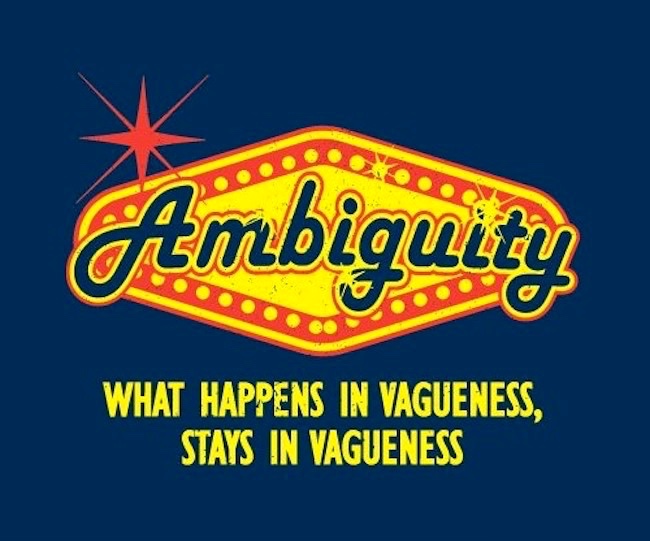Hi Ann –
Here’s something to file away under CONSILIENCE:
U.S. constitutional and constitutional criminal law have a doctrine called vagueness. A statute is void for vagueness if it does not clearly communicate its purpose to a person of average intelligence. In other words, a criminal statute must be intelligible to the workaday layman before it can impose criminal liability. Notice is a cornerstone of statutory criminal law. Vague, equivocal statutes that can be understood any number of ways are ripe for abuse by overly zealous prosecutors and political enemies.
There are similar doctrines for other areas of the civil law, such as real property. If a deed fails to sufficiently identify a parcel of land, any conveyance under that deed is void. It is void for vagueness.
Pope Benedict’s resignation purported to affirmatively renounce something, but since the Code of Canon Law goes out of its way to distinguish between munus and ministerium, merely renouncing one while implicitly retaining the other was ambiguous. His post-“resignation” acts further equivocated his intention. The entire post-event explanation was also vague. Novus Ordo Church™ says that the resignation was just like that of any other emeritus bishop (an infelicitous term so generously bequeathed to us by the springtime of Vatican II) who merely “retires” from the active ministry of his diocese. +Ganswein, on the other hand, apparently with Benedict’s blessing, laughably (sacrilegiously?) likens the move to the Immaculate Conception.
Applying the doctrine of vagueness: Ten years later, people of even above-average intelligence cannot understand or agree to the effect of Benedict’s “resignation.” The “resignation” failed to communicate Benedict’s intentions in a clear manner. Therefore, the Church cannot be bound by it. It is void for vagueness.
Were it possible to bifurcate the papacy (it is not, and never will be – HYPOTHETICAL HERE), his declaration and the manifestation of his “resignation” would still likely be void for vagueness given the inexactitude of his words in the declaration and the incongruity between what he said and how he manifested what he said. In any event, what he apparently intended was, in fact, substantially erroneous and invalid by the law itself. Even if Benedict had clearly and unequivocally communicated his intent to bifurcate the papacy, it still would have been void for substantial error. I raise the vagueness doctrine not as the true invalidating factor, but simply as yet another point of attack. Remember, this is for the consilience file wherein we operate on two different planes yet manage to arrive at the same endpoint. The same endpoint here? Invalidity.
Ideally, the Church will formulate an analogous doctrine and assert it against the Second Vatican Council and most everything following. What word could sum up the “teachings” of Novus Ordo Church™ better than “vague”? Legally speaking, what is vagueness other than chaos—Satan’s MO?
The Second Vatican Council is essentially self-negating. It says everything; it says nothing. People of above-average intelligence have collectively made millions of dollars and spilled oceans of ink trying—and failing miserably—to explain what the Council “rEaLly mEaNt!” We can do it a lot cheaper and with a 100% success rate: The Second Vatican Council means whatever the hell anyone from Cardinal Ottaviani, God rest his soul, to James Martin, S.J. wants it to. It has caused chaos because it is vague. It should be declared null and void. It should be VOIDED FOR VAGUENESS.
M

